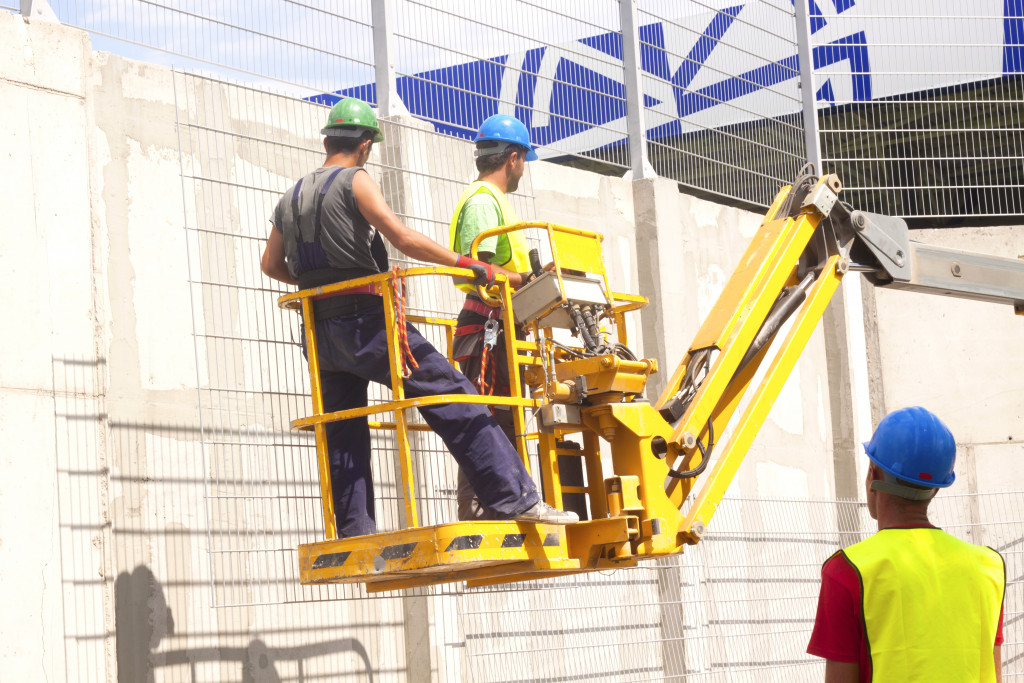- Establish worker safety protocols and provide protective gear.
- Prioritize employee well-being, offering competitive wages and benefits.
- Maintain high-end equipment with proper inspections and insurance.
- Manage supplier relationships vigilantly.
- Utilize technology to streamline processes and maximize efficiency.
Running a construction business is a challenging feat. It requires an in-depth understanding of the industry, as well as the ability to manage multiple teams and projects at once. If you’re looking to maximize efficiency and profitability in your construction business, it’s essential to keep up with the latest best practices. Read on to learn about five important best practices for managing a construction business.
1. Worker Safety First
The safety of your workers should always be your top priority. Establishing clear safety protocols that everyone must follow is key to creating a safe work environment. Make sure all employees have received proper training and are aware of any potential dangers that may arise on the job site.
Provide protective gear
Make sure to provide all workers with the proper protective gear, such as hard hats and reflective vests. This is especially important if your crew will be working at a height or near dangerous machinery.
Effective Scheduling
Having a well-crafted, organized schedule is essential to keeping your construction business running smoothly. This includes assigning tasks according to skill level and experience and allocating the right amount of time for each job to ensure nobody gets overworked.
2. Prioritize Employee Well-being

Your employees are the lifeblood of your business, so it’s important to prioritize their well-being above all else. Invest in quality healthcare plans for them and their families, which will help boost morale and motivate them to do their best work. In addition, offer competitive wages or bonuses to reward excellence on the job and encourage loyalty within your team. Ensuring they have access to necessary resources such as mental health counseling or addiction treatment services whenever needed also helps them feel supported throughout the process.
Good contracts and wage management
Having proper contracts and wage management in place is key to the long-term well-being of your employees. Make sure all employees are paid fairly and establish clear guidelines for dispute resolution should any arise. Additionally, never hire or retain subcontractors who don’t comply with your safety requirements or adhere to building codes.
3. Maintain Your Equipment
Without quality equipment, there’s no way you can run a successful construction business. Investing in high-end machinery can save you time and money in the long run by ensuring that it lasts longer and performs better than lower-grade options would. Properly maintain your equipment by regularly inspecting it for any signs of damage or wear and tear before use. This will help prevent accidents or costly repairs down the road.
You should also invest in insurance policies that cover repairs or replacements in case anything goes wrong with your machinery during operation hours — this provides peace of mind knowing that you’re covered if something were to happen unexpectedly while on the job site!
Equipment protection
Another way to protect your investment in high-end machinery is to use protective accessories. Machinery covers help keep your equipment safe from the elements and any debris that may be kicked up during operation. Utilizing overspray protection also shields the equipment from paint, asphalt, and other hazardous materials that could damage it.
4. Manage Your Supplier Relationships

Having reliable suppliers is essential to keeping your construction business functioning correctly. It would be best if you were sure that you’re working with vendors who provide quality materials and products at an affordable price, as well as those who are dependable and can deliver on time.
Research potential contractors before signing any agreements, and read the fine print to ensure that you’re still in compliance with all industry regulations. Collaborating with local suppliers is also a great way to support your community while building relationships that could benefit your business down the road.
5. Utilize Technology
Technology can help streamline many of the processes in a construction business. Automated software platforms can be used to manage budgets, allocate resources, and schedule jobs more efficiently. Software like Autocad and Sketchup can also be utilized to create detailed project plans so everyone involved clearly understands the objectives.
Additionally, drones and other unmanned aerial vehicles can help survey job sites from afar and even inspect buildings for potential problems before they become more significant issues. Drones have also become famous for marketing purposes, as they can take stunning aerial photographs and videos of the job site that can be used to attract more customers.
Finally, using GPS-enabled devices on your machinery makes it easy to track their location and use them in real time, so you can stay up to date on any potential issues before they become too serious.
In Closing
Managing a successful construction business isn’t easy — but with these five essential best practices, you can increase efficiency and profitability while keeping everyone safe on the job site! By following these five best practices, you’ll be well-equipped to manage your construction business more efficiently and effectively.

